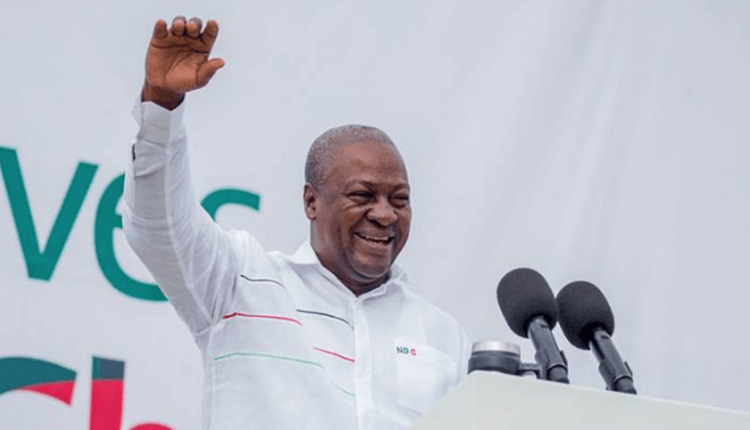The National Democratic Congress (NDC) has been tipped to win the 2024 Presidential elections and also win additional seats in Parliament; but the prospects of victory are predicted to look brighter for the party if former President John Mahama is not maintained as the presidential candidate.
This prediction, captured in a new report by the Economist Intelligence Unit (EIU) comes across as a rather contestable one considering the school of thought that John Mahama is currently the most marketed political commodity in the NDC.
“The next parliamentary and presidential elections are due in 2024. Under the constitutionally mandated term limits, Mr Akufo-Addo cannot run for a third term. Mr Mahama is reportedly considering whether to run again, but we expect the NDC to seek to revitalise its prospects with a fresh candidate.
“After two terms of NPP government, we expect the NDC to win the 2024 presidential election and to gain a small majority in parliament”, a portion of the EIU report under the sub heading ‘Political Outlook, stated.
If Nana Addo’s face would not be on the ballot sheet, an already marketed John Mahama, who polled some 47.4% of valid voted at the last elections, ought to be having a visibility advantage over which ever new face the New Patriotic Party (NPP) would present.
It therefore raises eyebrows, the unexplained argument by the EIU report that the NDC would “revitalize its prospects with a fresh candidate”
Again the report seems to predicting an NDC victory simply because the NPP is seeking a straight third term mandate to break the two-term jinx. That would be overly simplistic if other factors such as how the government has impacted the lives and pockets of the voters are not taken into consideration.
The contemporary Ghanaian voter has become rather sophisticated and largely unpredictable. It would therefore be superficial, and almost insulting, to conclude that the Ghanaian would vote out a government simply because the government has served two terms or maintain a government simply because it has served a term.
The changing attracting of a political commodity has become complex just as the factors that influences the current Ghanaian voter.
None of the two parties has officially issued a response to the report.
The EIU report also touched on the country’s economic outlook with brilliant assessments of her currency risk, sovereign risk, banking sector risk among others.
On the country’s economic forecast, the report said real GDP growth of 1.9% in 2021, following an estimated contraction of 0.2% in 2020.
It explained that the “hydrocarbons sector was hit by the fallout from the pandemic as the plunge in global oil demand and prices weighed on output. With energy prices forecast to rise slightly in 2021 as global demand recovers, oil production will increase. Gold production, which fell in 2020 despite surging global prices, will rise in 2021 as prices remain elevated and government efforts to curtail illegal mining boost formal activity.
Services, which were affected by lockdown measures and falling private consumption in 2020, will recover somewhat in 2021 as most measures are lifted (and we expect localised lockdowns to be imposed if cases surge) and private consumption picks up. Similarly, the agricultural sector will also register growth, benefiting from government investment in improving cocoa yields.
“In 2022-25 oil production will rise further at existing fields, but development work at new sites will be slow. A final investment decision (FID) on the Pecan offshore oilfield (managed by Aker Energy, a Norwegian firm) was originally scheduled for 2020 but has been delayed indefinitely. We expect the FID to be announced in 2022, with production to begin in 2024 (delayed from the previous target of 2022).
“The government has set a new deadline of May 2022 for the unification of the existing Sankofa (which has been operational since 2017 under Italy’s Eni) and adjoining Afina oilfields (discovered in 2019 by Ghana’s Springfield, but without an approved Plan of Development).
“However, development work at Afina has not started, and previous deadlines for unification have been missed, owing to questions about commercial viability from Eni; there has been limited transparency regarding due diligence work undertaken at the oilfield, and the government has pushed for stringent terms regarding profit-sharing.
“Springfield will struggle (in terms of financing and technical capacity) to develop the site independently, owing to its small size. We do not expect the project to be developed within the forecast period, owing to the long timescale needed to produce and approve plans, find suitable commercial partners and then begin production.
“Despite limited development work, rising oil output (from existing fields and Pecan from 2024) will boost real GDP growth to an annual average of 3.4% in 2022-25. This oil-led growth will counteract a fall in demand from the government and the private sector as monetary and fiscal policy tightens”, it stated.




Comments are closed.